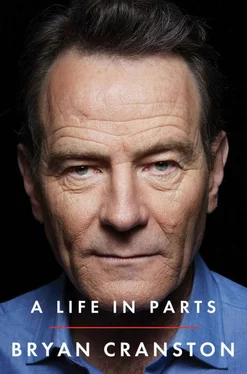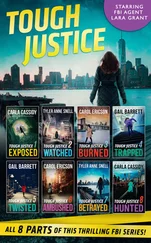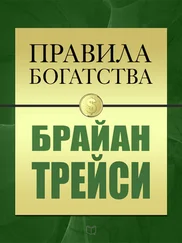Over two years we saw all kinds of movies at the Corbin. The Glass Bottom Boat . Oh Dad, Poor Dad, Momma’s Hung You in the Closet and I’m Feelin’ So Sad . The Graduate . I was eleven. Too young for The Graduate . But I loved it. I related to Dustin Hoffman’s character, his confusion. He was trying to figure things out. That’s how I felt, too. I was just starting puberty, just starting to awaken to the allure of girls, and I was enchanted and nervously excited by the idea that an older woman could seduce you, would want to seduce you. Dustin Hoffman’s character watching in awe as Anne Bancroft pulls her stockings onto her beautiful legs? The taboo image stayed with me wherever I went. Until that movie, I thought there was some kind of law that you had to be with someone your age for the parts to fit.
• • •
Corbin Bowl was a dud. My dad had to bow out after a couple years; he was crushed. My parents grew even further apart.
There was a period of weaning off. He started to show up at home less and less. And then not at all.
Two years later, we went to a courthouse with my mom. She wore her best dress and a lot of makeup. Despite her coiffure and pretty façade, her mood was tense and downbeat. I think she told us she was the witness to someone’s divorce. I don’t remember exactly when we learned it was hers. Sometime later.
We saw my father in the cold marble courthouse hallway under the fluorescent lights. We hadn’t seen him in two years. I remember his dress shoes and then his face close to ours when he knelt down to say hello. And then moments later, in a blur of violence, he slugged a guy. Boom. Man down. Blood splattered.
“Jimmy! Jimmy!”
It turned out Jimmy was the husband of the woman my dad stole and would soon marry. Her name was Cindy. It all happened so quickly. Maybe it took two minutes. Two minutes. And then my dad was gone. I wouldn’t see him again for a decade.
I remember lying to my friends and neighbors, the Baral boys, when they asked me, “Where’s your dad?”
“Oh, he’s been working every day but he comes home at night and wakes us up and we play for a long time.” I think they believed it. Even I started to believe it.
For a while my dad had been a ghost. And then he was gone. We were never told why. In fact, we were never told anything. That’s just what happened. Move on.
For the longest time I thought my sister, Amy, who was too young to understand what was happening, was luckier for sliding through that period relatively unscathed. But now I realize that she missed all the happiness and stability of the time before things fell apart—the Christmas lights, the outings, and the games we’d play as a family.
Because we had known the good times, I think my brother and I felt the loss more acutely. My father’s waning presence, his chronic absence, his disappearance. Now he was just a memory.
He was the love of my mom’s life. In his wake she grew angry. She began tending to her resentment like a private garden that was more real to her than any living thing. Where once she was vibrant and accessible, now she was overtaken by depression and inertia. Once caring and present, now she was sullen and melancholy and remote. She began to drink. Slowly at first, and then not slowly. She started with wine. Boxed wine. Wine in jugs with the little finger hole. I saw a lot of those empty jugs.
She would perch at the kitchen table draining her glass and complain to my brother and me: Your father. Ugh, your father. He needed to be a star. And he wasn’t a star. And that’s what drove him crazy.
She’d sometimes turn to me and say, with a sneer of bitterness and pain: You look just like him.
What was she going to do? Since there was now zero money coming in, she needed to find a pathway to income. Mom was a natural pack rat, so the obvious avenue was to sell off some “assets.” Her plan was to pack up her ’56 pink Cadillac (probably a holdover from one of our “up” periods), and drive to the Simi Valley swap meet to sell whatever she could. Every Saturday night, Kim and I would pack the Pink Lady, as my mom had affectionately dubbed her car, to the roof. And every Sunday morning, before sunrise, we’d somehow, someway stuff ourselves in, too, for the twenty-five-mile trip.
Kim and I were charged with unloading the car and arranging the eclectic items for sale on blankets. We made tidy rows while Mom went scouring for bargains from other sellers. About the time we finished setting up our wares, Mom would return with armloads of other people’s junk for us. Not for us, exactly, not for our personal use, but to resell at a profit. We carefully integrated the new haul into our own.
When Mom found out that there was another swap meet opening up on Saturdays in Saugus, in Santa Clarita, we added that to our itinerary. We now spent the whole weekend at swap meets. We were in the junk business. Once we sold off our own items, we became fully dedicated to hawking other people’s goods. The garage that Kim and I had once used as a stage for creative expression was now creating an expression all its own. Junk filled the space from floor to ceiling. It wasn’t just the garage. The house was now unrecognizable to us. Everything was stacked and crowded and askew: slightly used bedding and secondhand clothing and radios with broken speakers and ratty furniture and tarnished table settings. There were dolls with one eye missing and tattered magazines with their covers torn off.
I came to abhor clutter. I still feel uneasy when things around me are in disarray.
But my mom pressed on. In spite of her growing desperation and despair, there was something valiant about her tenacity. I think she really did believe the swap meets would save us. But in the end, the numbers wouldn’t add up. After a while, the bank told her that we were going to lose the house. And then we did.
I got adequate grades, but the teacher comment section of my report card was always filled with ominous statements: Bryan needs to apply himself. Bryan is often goofing around and disruptive. Bryan spends too much time daydreaming. I so clearly remember hearing these comments reworked and recited back to me as admonishments whenever my parents disapproved of my behavior. If I were a kid today, I’d probably be diagnosed with mild ADHD. Back then, the only descriptor for my condition was: Bryan needs to pay more attention.
So, now entering fifth grade, what was different? Maybe I looked to school as a haven away from the chaos at home. Maybe school was a safe place where I could focus my energies. Whichever. My grades rose, and so did my spirits. Suddenly I was popular; I was invited to parties and asked to run for student-body president. I was a good athlete—not great, just good, but I harbored the dream that one day I would become a major league baseball player.
I also dreamed of Carolyn Kiesel, a torturously cute classmate. She wore her dark brown hair in an adorable cut that framed her petite features. Rather than telling this sweet girl how I felt or striking up a conversation, I put some of the tasty paste we used for arts and crafts in her hair. Naturally, that made Carolyn angry with me—which was… all right by me. I understood anger ; it was affection I couldn’t wrap my head around. Having Carolyn yell at me was at least better than having her not notice me at all. Eventually I realized I needed to find another way to tell Carolyn I liked her. Maybe next year when we were both mature sixth graders.
I was very fortunate to have two wonderful mentors in Mrs. Waldo and Mrs. Crawford, my fifth and sixth grade teachers at Sunny Brae Elementary. Neither of them was finger-wagging or textbook. They wanted their students to find their own ways to express themselves, and they encouraged me to explore performance. I learned that there were other ways to do a book report besides sitting down and writing the tired old: Huck Finn , Mark Twain’s most acclaimed work, tells the story of the travails of a young man as he leaves his hometown seeking adventure, blah, blah, blah. None of that. I could act it. I could be Huck Finn. Or Professor Flipnoodle.
Читать дальше












